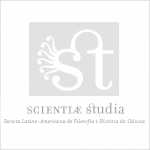El individuo como pluralidad: de la citología a la filosofía nietzscheana de los años 1880
Vol. 12, No. 3 • Scientiae Studia
Autor: Irene Audisio
Resumo:
Durante los años 1880, Nietzsche propone una idea original de individuo en tanto pluralidad como un modo de superación del difundido nihilismo con respecto a la unidad. Sus escritos, tanto editados como inéditos, presentan una crítica aguda de la concepción heredada de unidad anímica y cultural acorde con la crisis de identidad que vive Europa en la segunda mitad del siglo xix. Nuestro objetivo es mostrar un hilo que va desde la biología celular hasta la filosofía de Nietzsche. Consideramos cómo la biología celular, especialmente con Rudolph Virchow, inauguró la crítica de la noción de Individuum desde el plano orgánico. Eso constituyó un motivo fuerte en la psicología de los franceses Hippolyte Taine y Theódule Ribot, quienes transpusieron el problema al ámbito anímico y de la psicopatología. Ambos concluyeron con un fuerte cuestionamiento sobre la unidad y simplicidad del yo. Eso generó un profundo interés en la filosofía de Nietzsche que en repetidas ocasiones se refiere al Individuum como una multiplicidad de células. Finalmente, profundizaremos en el registro nietzscheano acerca del Individuum, ya que constituye uno de los costados del pensamiento sobre el Übermensch, que Nietzsche imagina inspirado en los grandes hombres del Renacimiento, como posible superación del nihilismo.
Abstract:
Among possible ways that Nietzsche can take to deal with Nihilism and its challenges, he proposes an original idea of plural individual. His papers both published and unpublished, present a sharp critique of the inherited view of psychic and cultural unit. It was in line with the identity's crisis faced by Europe along the second half of the nineteenth century. Our goal is to show a thread that goes from cell biology to Nietzsche's philosophy. We see how cell biology, precisely through Rudolph Virchow, inaugurated the critique of the notion of organic Individuum from the organic field. It became a strong subject in the psychology of Hippolyte Taine and Theódule Ribot. They transposed the issue to the field of mind and psychopathology. Both concluded in a strong challenge on the self's unity and simplicity. This generated a deep concern in Nietzsche's philosophy. He repeatedly refers to Individuumas a multiplicity of cells. Finally, we will go in deep into the Nietzschean consideration about Individuum because this topic means one important aspect of the concept of Übermensch that Nietzsche imagines inspired by the great men of the Renaissance as a promising way out of Nihilism.
ISSN: http://dx.doi.org/10.1590/S1678-31662014000300002
Texto Completo: http://www.scielo.br/scielo.php?script=sci_arttext&pid=S1678-31662014000300002&lng=pt&nrm=iso&tlng=es
Palavras-Chave: Nietzsche, Virchow, Cytology,Individual, Tain

Scientiae Studia
Associação Filosófica Scientiae Studia - Revista Scientiae Studia
